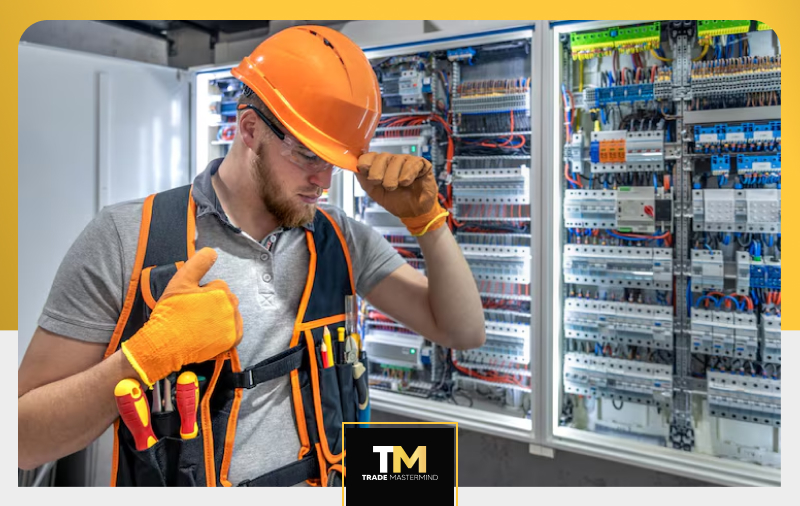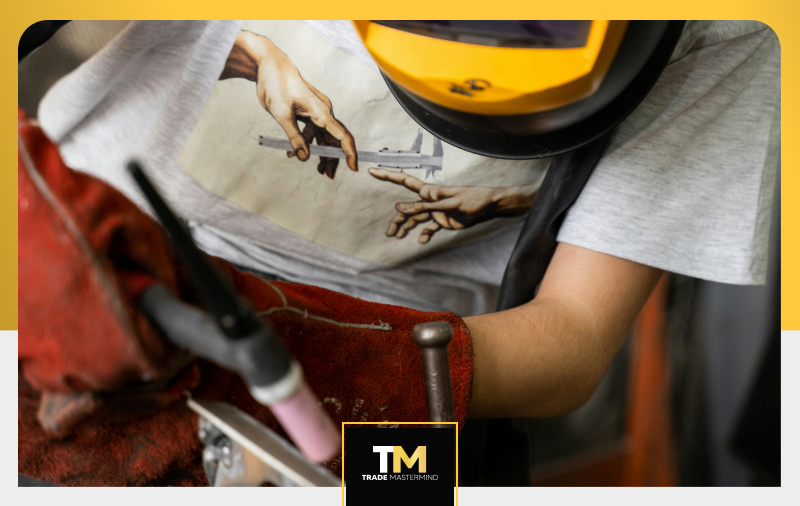Are you thinking to start an electrical business? We are here to help you with all the aspects that are covered in the electrical training UK concept. We understand it is quite a complex process to deal with as it comes with several responsibilities. This is why we are here to help you with all the necessary steps that can help you start an electrical business trade without any hassle.
Necessary Steps To Start An Electrical Business in UK
Explore the steps below that can help you in the process to start an electrical business without any difficulty.
Becoming a Qualified Electrician
The initial step towards starting an electrical business is to become a qualified electrician. There are several professional electrical training routes available in the UK that can help you gain the necessary qualifications and skills. Whether you choose to undertake an apprenticeship program, full-time college course or gain qualifications through experience, it is important to pay close attention to the various trade training standards set by regulatory bodies.
Getting Relevant Experience
While qualifications are important, gaining practical experience working as an electrician is also highly beneficial before starting your own business. Spending a year or two gaining on-the-job experience, whether as an employee or self-employed subcontractor, provides exposure to various aspects of running an electrical operation. You get to learn about a company’s processes, timelines, project management, client relations, compliance, budgeting and more. Such exposure helps reinforce your classroom learning and make you better prepared to handle the responsibilities of business ownership.
Deciding on Business Structure
When ready to formally embark on your own company, the next important step is deciding on an appropriate business structure. Most electricians start out as sole traders due to the simple registration process but later transition to a limited company as the business grows. Both structures have pros and cons relating to costs, responsibility and liability which need weighing up carefully based on individual circumstances. Consulting with an accountant can provide valuable insight.
As a sole trader, you are not distinct from your company in the eyes of the law so are personally liable for all business debts and obligations. This means your personal assets could be at risk if the business faces financial troubles. On the plus side, setting up and adhering to regulations as a sole trader tends to be less complex administratively.
Incorporating as a limited company separates you legally and financially from the business. This protects your personal assets and savings from company debts or lawsuits. It also provides easier access to loans and outside investment to help grow the business. However, limited companies involve more complex registration, annual fees and ongoing compliance with Companies House reporting.
There are no definitive rules around which structure is best long-term – it depends on individual circumstances and future plans. Either way, having a firm understanding of the legal and financial implications is essential for any new entrepreneur.
Obtaining Necessary Insurances
Protecting your business and meeting legal obligations also requires putting necessary insurance policies in place. For an electrical contractor, standard insurance covers would include:
- Public liability insurance
- Employers’ liability insurance
- Tools & equipment insurance
- Professional indemnity insurance
- Electrical contractor insurance
Registering with Competent Person Schemes
To undertake certain electrical installation and inspection work in the UK, businesses must be registered under competent person schemes approved by building control bodies. These schemes assess qualification, experience and quality assurance procedures of contractor members to ensure compliance with safety regulations. The two main schemes for domestic electrical installation and inspection work are:
- NICEIC (National Inspection Council for Electrical Installation Contracting)
- ELECSA (The Electrical Contractors’ Association for Scotland)
Professional registration confirms adherence to standards expected in the electrical trade.
Building Business Relationships
Establishing close business relationships with reputed suppliers helps ensure competitive pricing and on-time product delivery when needed for jobs. Having a supplier that provides credit and delivers directly to client sites can also help cashflow. When choosing suppliers, consider their range of brands, delivery timelines, order minimums and payment terms to align with your operations.
Crafting an Effective Marketing Strategy
While word-of-mouth referrals from existing clients play a big role, a well-executed marketing strategy is still necessary to continuously generate leads for a new electrical business. This involves activities like:
- Website development
- Search engine optimization
- Print materials
- Trade directories
- Social media
- Cold-calling
- Community involvement
Regular online and offline marketing ensures steady client acquisition without breaking budget. Tracking lead sources helps optimizing strategies that provide best ROI. With steady promotion, the brand gains acknowledgement as a credible local electrical contractor over time.
We will teach you our 12-step signature method, which includes marketing, sales, operations, finance, and much more, giving you the abilities you need to grow. Join Trade Mastermind’s Renewable Business Builder Academy now!
Preparing For Challenges
While starting an electrical business provides rewarding independence, new entrepreneurs should also prepare for challenges that may arise:
- Cashflow management during slow periods or delayed client payments requires financial buffers.
- Finding and retaining skilled tradespeople amid staff shortages demands competitive benefits.
- Expanding service offerings appropriately based on demand prevents over-diversifying too soon.
- Compliance with evolving regulations like working time directives impacts operations.
- Maintaining equipment, vehicles and insurance increases fixed overhead costs.
- Slow admin work including taxes, bookkeeping and compliance needs dedicated time.
Having team members support core operations and outsourcing non-core functions help manage such issues better. Seeking advice from experienced trade associations and accountants is valuable too. Overall, thorough preparations coupled with flexibility and learning on the job can help overcome challenges smoothly.
Related Podcast: How to Build a Profitable Renewables Business
Final Thoughts
Taking that leap into starting your own successful electrical business in the UK is demanding yet rewarding. Pulling together all the necessary pieces like qualifications, experience, structures, processes and people requires dedication and strategic execution. With focused attention on compliance, quality, marketing and growth, new electrical entrepreneurs stand a strong chance of establishing a reputed, sustainable trade business over the long term. The potential for increased independence, income and job satisfaction certainly makes the journey worthwhile. Good luck!







